Football-Playing Robots
When robots play football, it looks like a game played by five-year-olds: they swarm around the ball, kick haphazardly and fall down a lot.
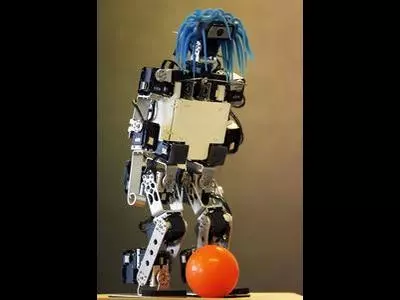
When robots play football, it looks like a game played by five-year-olds: they swarm around the ball, kick haphazardly and fall down a lot.
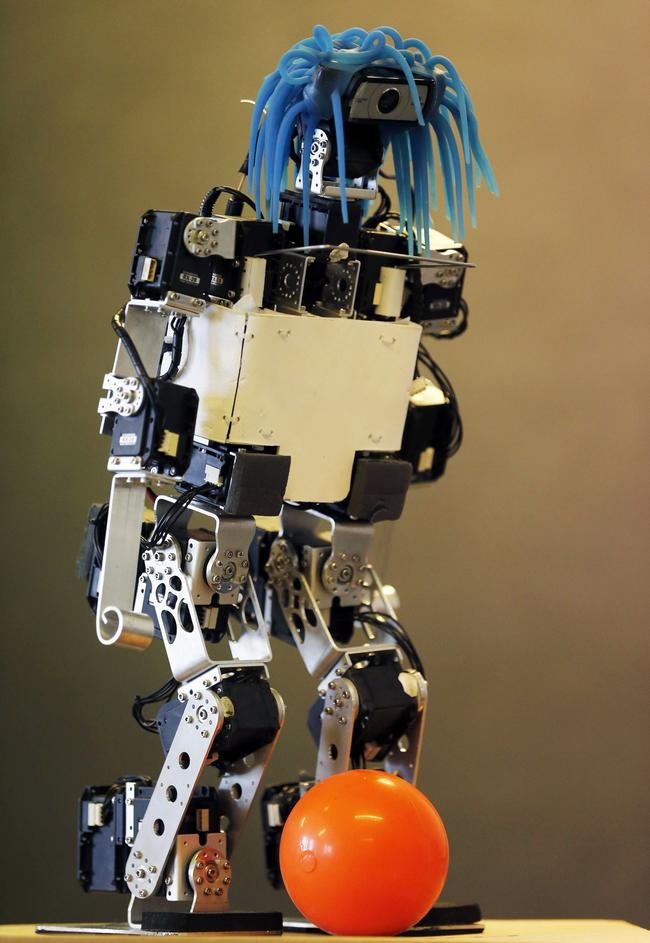
When robots play football, it looks like a game played by five-year-olds: they swarm around the ball, kick haphazardly and fall down a lot.
But robot teams have made strides in recent years, and some researchers believe the humanoids could challenge the world's best players in a decade or two. Text: AFP
?
In Pic: A humanoid robot of the Rhoban project's team is seen at the LaBRI workshop in Talence, southwestern France, July 7, 2014. The humanoid robot, one of four, which is developed by researchers and students from the University of Bordeaux, will compete at the annual 2014 world robotic's championship "RoboCup" taking place in Brazil from July 21 to 24. Picture taken July 7, 2014. REUTERS
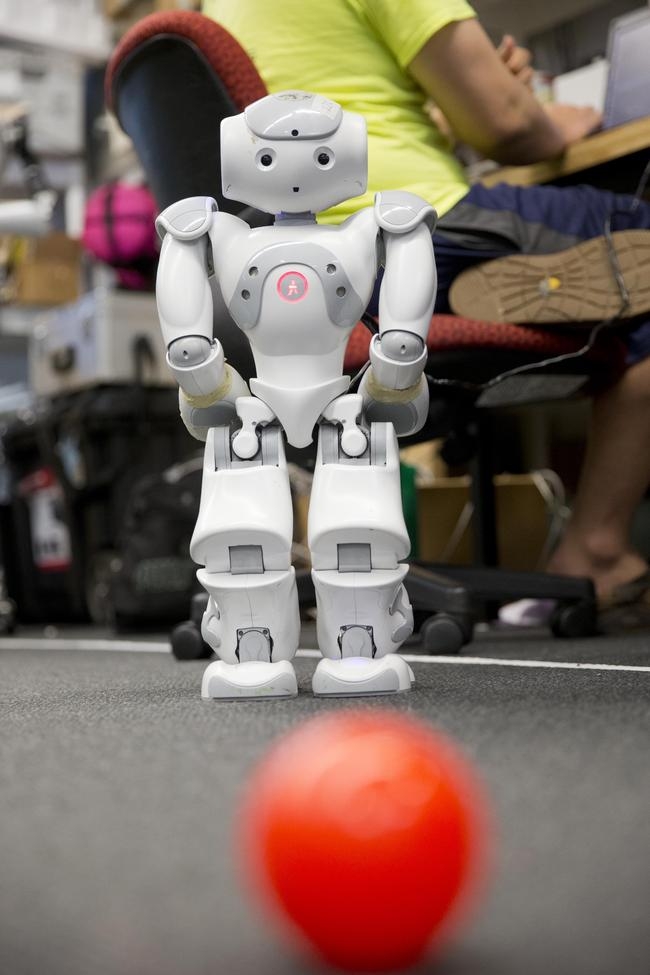
'Maybe in 20 years we could develop a team of robots to play against the best World Cup teams,' said Daniel Lee, who heads the University of Pennsylvania robotics lab, which is seeking a fourth consecutive RoboCup in Brazil next month, the premiere event for robotic football.
?
In Pic: In this July 7, 2014, photo, students at the University of Pennsylvania work with one of their RoboCup entries the school in Philadelphia. The idea is to program robots to make quick, smart decisions while working together in a changing environment. AP
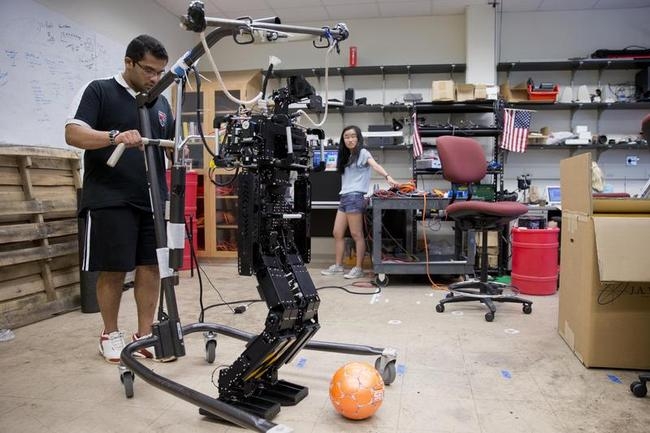
Robotic football, says Lee, is more than fun and games.?
It involves artificial intelligence and complex algorithms that help provide a better understanding of human vision, cognition and mobility.
?
In Pic:?In this July 7, 2014, photo, research associates Larry Vadakedathu, left, and Qin He work with one of their RoboCup entries, a 5-foot-tall metal humanoid named THOR (Tactical Hazardous Operations Robot), in the adult-size league at the University of Pennsylvania in Philadelphia. A week after the World Cup title game in Rio de Janeiro, teams from 45 countries will face off at RoboCup about 1,200 miles away in the Brazilian coastal town of Joao Pessoa. AP
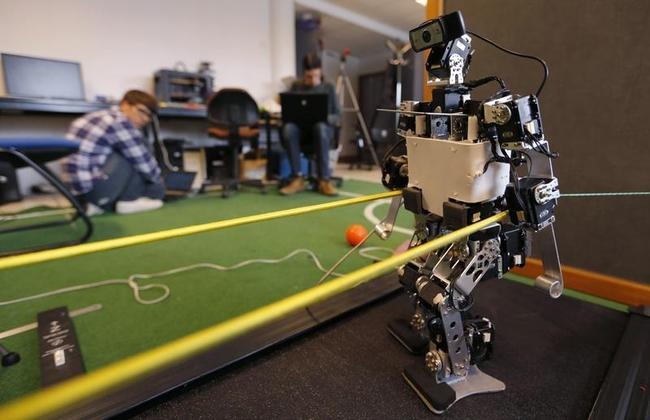
Similar technology can be used for robots that perform household tasks or search and rescue, and for self-driving cars, said Lee, who led a demonstration of his robot football team last month at the New America Foundation, a Washington think tank.
?
In Pic: Members of the Rhoban project's team check functions of a humanoid robot at the LaBRI workshop in Talence, southwestern France, July 7, 2014. The humanoid robot, one of four, which is developed by researchers and students from the University of Bordeaux, will compete at the annual 2014 world robotic's championship "RoboCup" taking place in Brazil from July 21 to 24. Picture taken July 7, 2014. REUTERS
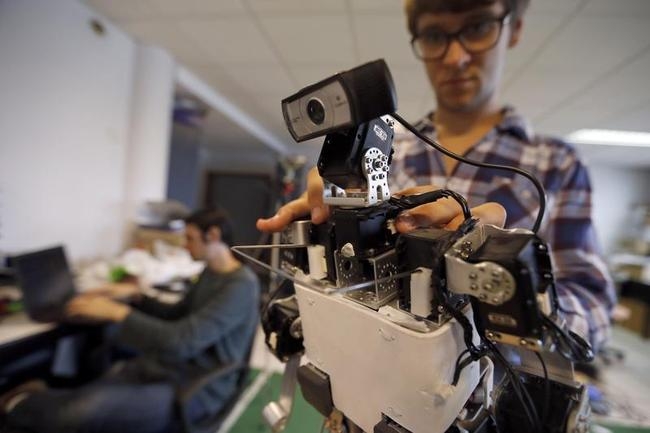
Lee said robots have improved their game from a decade ago, having moved from four-legged doglike machines to two-legged humanoid forms.?
But he said there is still a lot to be learned before robotic football can be competitive with humans.?
The robots in last month's demo still moved awkwardly, sometimes failed to locate the ball, and often ended up in collisions or fell over on their own.
'We have machines that can beat us in chess,' he said. 'But we (humans) can still kick their butts in soccer.'
?
In Pic: A member of the Rhoban project's team checks functions of a humanoid robot at the LaBRI workshop in Talence, southwestern France, July 7, 2014. The humanoid robot, one of four, which is developed by researchers and students from the University of Bordeaux, will compete at the annual 2014 world robotic's championship "RoboCup" taking place in Brazil from July 21 to 24. Picture taken July 7, 2014. REUTERS
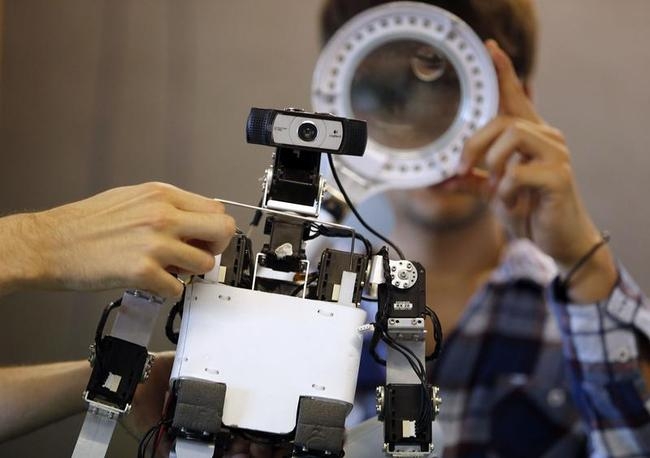
The robots are autonomous, they need to be able to handle all kinds of tasks humans take for granted: finding the ball, responding to different light conditions and terrain, and determining the best strategy.
'Our robots are calculating everything terms of probability,' he said, which means a human can outsmart a machine.
'In creativity, humans have an advantage.'?
The Penn student team took home the RoboCup in the Netherlands in 2013 for the third year running, after victories in Mexico City in 2012 and Istanbul in 2011.
?
In Pic: Members of the Rhoban project's team check functions of a humanoid robot at the LaBRI workshop in Talence, southwestern France, July 7, 2014. The humanoid robot, one of four, which is developed by researchers and students from the University of Bordeaux, will compete at the annual 2014 world robotic's championship "RoboCup" taking place in Brazil from July 21 to 24. Picture taken July 7, 2014. REUTERS
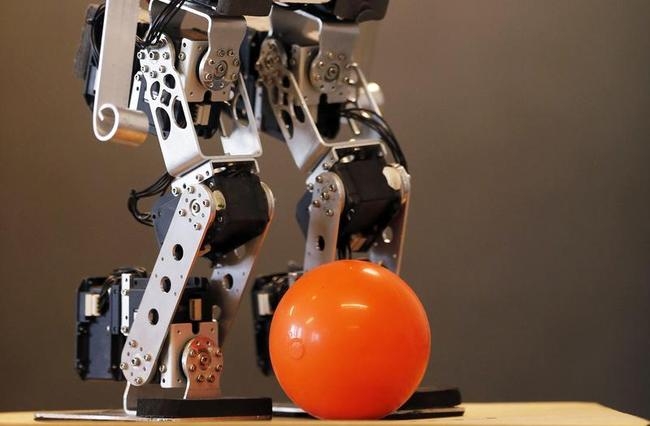
The biggest challenge is to develop the type of awareness and intelligence that athletes have.
Lee said the research draws from a variety of disciplines, from engineering to anatomy to knowledge of sports.
'What is difficult is to understand the intent of the other team, that is what prevents us from being more sophisticated,' Lee said.
?
In Pic: A humanoid robot of the Rhoban project's team is seen at the LaBRI workshop in Talence, southwestern France, July 7, 2014. The humanoid robot, which is developed by researchers and students from the University of Bordeaux, will compete at the annual 2014 world robotic's championship "RoboCup" taking place in Brazil from July 21 to 24. Picture taken July 7, 2014. REUTERS
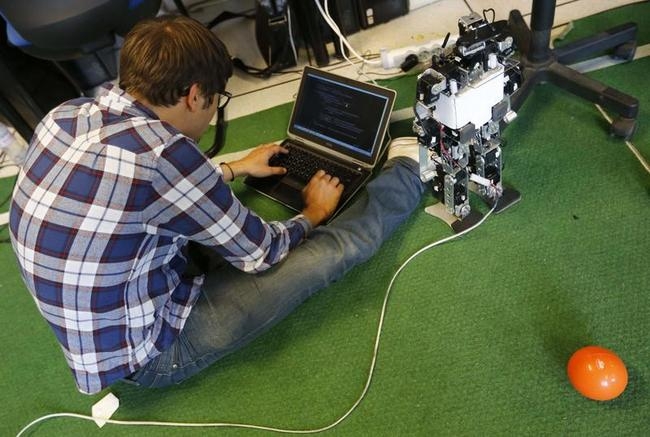
And in addition to developing technology for individual robots, the researchers need to find better ways for the machines to communicate with each other to coordinate strategy.
Lee said all this requires 'a deep understanding of intelligence,' and added that 'we are still many years away.'
?
In Pic: A member of the Rhoban project's team checks functions of a humanoid robot at the LaBRI workshop in Talence, southwestern France, July 7, 2014. The humanoid robot, one of four, which is developed by researchers and students from the University of Bordeaux, will compete at the annual 2014 world robotic's championship "RoboCup" taking place in Brazil from July 21 to 24. Picture taken July 7, 2014. REUTERS/Regis Duvignau (FRANCE - Tags: SPORT SOCCER SOCIETY SCIENCE TECHNOLOGY EDUCATION)
